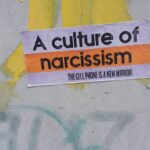ESCAPING THE NARCISSIST
Are you trapped in a toxic relationship? It's time to reclaim your life and find healing. ESCAPING THE NARCISSIST: HOW TO HEAL AND RECOVER FROM NARCISSISTIC ABUSE IN RELATIONSHIPS is your guide to breaking free and starting your journey towards recovery.
Don't let the pain control you any longer. Take the first step today and discover the strategies to overcome emotional abuse and rebuild your life. You deserve happiness and peace.
Start Your Healing Journey TodayNarcissism is a personality trait characterized by an inflated sense of self-importance, a constant need for admiration, and a lack of empathy for others. While narcissism is often associated with individuals who have a grandiose sense of self, it can also manifest in friendships. Understanding narcissism in friendships is crucial for maintaining healthy relationships and protecting our own well-being.
In friendships, narcissistic behavior can manifest in various ways. A narcissistic friend may constantly seek attention and validation, dominate conversations, and disregard the needs and feelings of others. They may also manipulate and exploit their friends for their own gain. Recognizing these behaviors is essential for identifying a narcissistic friendship and taking steps to protect ourselves.
The Charismatic Charm of a Narcissistic Friend
One of the reasons why narcissists can be appealing as friends is their charismatic charm. They often possess qualities such as confidence, charisma, and a magnetic personality that can draw others towards them. They may be skilled at making others feel special and valued, which can be highly enticing.
Being friends with a narcissist can also have its perks. They may introduce us to exciting opportunities, connect us with influential people, or make us feel important by association. Their charm and ability to make us feel good about ourselves can be intoxicating, leading us to overlook or dismiss their negative behaviors.
However, it is important to recognize that the charm of a narcissistic friend is often superficial and self-serving. They may only be interested in maintaining the friendship as long as it benefits them or boosts their ego. Falling for their charm without recognizing their underlying narcissistic traits can lead to disappointment and harm in the long run.
The Red Flags of a Narcissistic Friendship
Spotting red flags early on in a friendship is crucial for identifying narcissistic behavior. Some common signs that your friend may be a narcissist include:
1. Constant need for attention and admiration: A narcissistic friend may constantly seek attention and validation from others. They may dominate conversations, interrupt others, and steer the conversation back to themselves.
2. Lack of empathy: Narcissists often lack empathy for others and struggle to understand or care about their friends’ feelings and needs. They may dismiss or belittle the emotions of others, making their friends feel unheard and unimportant.
3. Manipulative behavior: Narcissists are skilled manipulators and may use tactics such as guilt-tripping, gaslighting, or playing mind games to control their friends. They may exploit their friends for personal gain or manipulate them into doing things they don’t want to do.
Recognizing these red flags early on is essential for protecting ourselves from the negative impact of a narcissistic friendship. Trusting our instincts and being aware of these warning signs can help us make informed decisions about the health of our friendships.
The One-Sided Nature of a Narcissistic Friendship
One of the defining characteristics of a narcissistic friendship is the one-sided nature of the relationship. Narcissists prioritize their own needs, desires, and interests over those of their friends. They may expect constant attention and support from their friends while offering little in return.
In a narcissistic friendship, there is often an imbalance in power dynamics. The non-narcissistic friend may find themselves constantly catering to the needs and demands of the narcissist, while their own needs are ignored or dismissed. This can lead to feelings of resentment, frustration, and emotional exhaustion.
The toll that a one-sided friendship takes on the non-narcissistic friend can be significant. They may feel drained, unappreciated, and undervalued. The constant focus on the narcissist’s needs can leave them feeling neglected and invisible. It is important for individuals in these types of friendships to recognize the imbalance and prioritize their own well-being.
The Manipulative Tactics of a Narcissistic Friend
Narcissists are skilled manipulators and may use various tactics to control and exploit their friends. Some examples of manipulative behavior in a narcissistic friendship include:
1. Gaslighting: Narcissists may manipulate their friends by distorting their perception of reality. They may deny or minimize their own negative behaviors, make their friends doubt their own memories or experiences, and shift blame onto others.
2. Guilt-tripping: Narcissists may use guilt as a tool to manipulate their friends into doing what they want. They may make their friends feel responsible for their happiness or use emotional blackmail to get their way.
3. Playing mind games: Narcissists may engage in manipulative mind games to assert control over their friends. They may create drama, provoke conflicts, or use passive-aggressive tactics to keep their friends off balance and maintain power in the relationship.
These manipulative tactics can have a significant impact on the non-narcissistic friend’s emotional well-being. They may feel confused, anxious, and constantly on edge. It is important for individuals in these situations to recognize the manipulation and seek support to protect themselves.
The Emotional Drain of a Narcissistic Friendship
Being friends with a narcissist can be emotionally draining. Narcissistic friends often demand constant attention, validation, and support from others without reciprocating these behaviors. This can leave the non-narcissistic friend feeling emotionally exhausted and overwhelmed.
The constant focus on the narcissist’s needs can also take a toll on the non-narcissistic friend’s mental health. They may experience feelings of anxiety, depression, and low self-esteem as a result of constantly catering to the needs of someone who does not value or appreciate them.
Setting boundaries is crucial in managing the emotional drain of a narcissistic friendship. It is important for individuals to prioritize their own well-being and establish limits on what they are willing to give and tolerate in the relationship. Seeking support from loved ones or professionals can also be helpful in navigating the emotional challenges of these friendships.
The Lack of Empathy in a Narcissistic Friend
One of the defining traits of narcissism is a lack of empathy for others. Narcissistic friends often struggle to understand or care about the feelings and needs of their friends. They may dismiss or belittle their friends’ emotions, leaving them feeling unheard and invalidated.
The lack of empathy in a narcissistic friendship can have a significant impact on the non-narcissistic friend’s emotional well-being. They may feel isolated, unimportant, and invisible. The constant disregard for their feelings and needs can erode their self-esteem and sense of self-worth.
Having a meaningful friendship with a narcissist is often challenging due to their inability to empathize with others. It is important for individuals in these friendships to recognize that they may never receive the emotional support and understanding they desire from their narcissistic friend. Seeking support from other sources, such as trusted friends or therapists, can help fill this void.
The Competitive Nature of a Narcissistic Friendship
Narcissists view friendships as a competition where they must constantly prove their superiority and maintain their position of power. They may engage in behaviors such as bragging, one-upping, or undermining their friends’ achievements to assert dominance.
The competitive nature of a narcissistic friendship can have a detrimental impact on the non-narcissistic friend’s self-esteem. Constantly being compared to and overshadowed by the narcissist can leave them feeling inadequate and insecure. The focus on competition rather than genuine connection can prevent the development of a healthy and supportive friendship.
Recognizing and addressing this competitive behavior is crucial for maintaining a healthy sense of self-worth in a narcissistic friendship. It is important for individuals to remind themselves of their own value and worth, independent of the narcissist’s opinions or actions. Surrounding oneself with supportive and uplifting individuals can also help counteract the negative impact of the competitive nature of these friendships.
The Gaslighting Effect of a Narcissistic Friend
Gaslighting is a manipulative tactic commonly used by narcissists to control and manipulate their friends. Gaslighting involves distorting the truth, denying or minimizing their own negative behaviors, and making their friends doubt their own perceptions and experiences.
The gaslighting effect of a narcissistic friend can be highly damaging to the non-narcissistic friend’s mental health. Constantly being made to question one’s own reality can lead to feelings of confusion, self-doubt, and even paranoia. The gaslighting tactics employed by narcissists can erode the non-narcissistic friend’s sense of self and make them feel like they are losing their grip on reality.
Seeking support and validation from trusted friends, family members, or professionals is crucial in countering the gaslighting effect of a narcissistic friend. Having external sources that can provide objective perspectives and affirm one’s experiences can help restore confidence and clarity.
The Difficulty of Ending a Narcissistic Friendship
Ending a friendship with a narcissist can be incredibly challenging. There are several reasons why individuals may find it difficult to walk away from these toxic relationships:
1. Fear of retaliation: Narcissists often have a strong need for control and may react negatively when their power is threatened. They may engage in retaliatory behaviors such as spreading rumors, manipulating others against the non-narcissistic friend, or engaging in smear campaigns.
2. Guilt and obligation: Narcissists are skilled at manipulating others into feeling guilty or responsible for their happiness. The non-narcissistic friend may feel a sense of obligation to stay in the friendship, even if it is detrimental to their well-being.
3. Fear of being alone: Narcissistic friends often monopolize their friends’ time and attention, leaving them with few other social connections. The fear of being alone or losing all social support can make it difficult for individuals to end the friendship.
Despite these challenges, it is important to prioritize one’s own well-being and mental health. Ending a narcissistic friendship may be necessary for personal growth and healing. Seeking support from loved ones or professionals can provide the necessary guidance and strength to navigate this difficult process.
Healing and Moving On from a Narcissistic Friendship
Healing and moving on from a narcissistic friendship is a process that requires self-care, self-compassion, and support. Here are some steps individuals can take to facilitate healing:
1. Practice self-care: Engage in activities that bring joy and fulfillment. Prioritize self-care practices such as exercise, meditation, and spending time with loved ones.
2. Seek support: Reach out to trusted friends, family members, or professionals who can provide emotional support and guidance throughout the healing process.
3. Set boundaries: Establish clear boundaries with the narcissistic friend to protect oneself from further harm. This may involve limiting contact, refusing to engage in manipulative behaviors, or ending the friendship altogether.
4. Reflect and learn: Take time to reflect on the lessons learned from the narcissistic friendship. Use this experience as an opportunity for personal growth and self-discovery.
5. Focus on healthy relationships: Surround oneself with supportive and nurturing individuals who value and appreciate one’s worth. Cultivate healthy friendships based on mutual respect, empathy, and genuine connection.
Recognizing and addressing narcissistic behavior in friendships is crucial for maintaining healthy relationships and prioritizing our own well-being. While it can be difficult to end a friendship with a narcissist, it is important to prioritize our own mental health and seek support in the healing process. With time, self-care, and support, individuals can heal and move on from the toxic effects of a narcissistic friendship.


